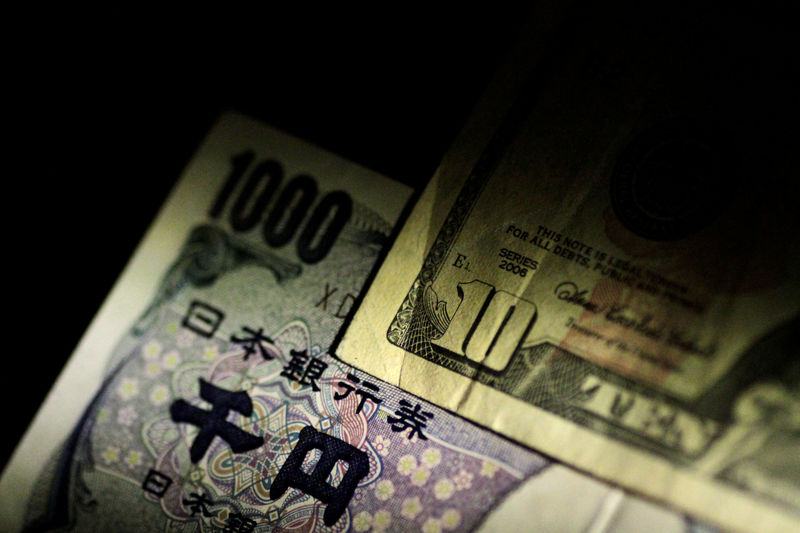By Hideyuki Sano
TOKYO (Reuters) - The dollar held firm against the yen on Friday, as comments from Beijing sparked renewed hopes that China and the United States could get full-fledged negotiations back on track to resolve their protracted trade dispute.
The U.S. currency was also supported by investors' month-end rebalancing needs, which has helped lift the dollar index to its highest level in a month.
The dollar index (=USD) rose to as high as 98.554 on Thursday, a top last seen on Aug. 1, and last stood at 98.439.
Against the yen, the greenback traded at 106.53 yen , flat from late U.S. levels and up 1.1% on the week.
China's commerce ministry said on Thursday Beijing and Washington were discussing the next round of face-to-face talks scheduled for September.
U.S. President Donald Trump said some discussions were taking place on Thursday, ahead of a looming deadline for additional U.S. tariffs on Sept. 1.
The signs of talks were enough to mitigate worries about a further escalation in bilateral tensions, which intensified last week after both countries imposed additional tariffs on each other's goods late last week.
Yet, political risks from UK to Hong Kong and the Middle East added to the risks for the global economy and kept many investors on edge.
Despite the dollar's latest rebound against the yen, the U.S. currency is still down 2.1% on month.
"There are so many geopolitical risk factors now. Not to mention U.S.-China trade conflicts, we have Brexit, Hong Kong and the Middle East. So we should expect the yen to jump from time to time," said Minori Uchida, chief currency analyst at MUFG Bank.
The Australian dollar, often seen as a proxy bet on the Chinese economy, stood at $0.67295 , just about a half cent above its 10-year low of $0.66775 hit on Aug. 7.
The euro was little changed at $1.1058 (EUR=), having hit a four-week low of $1.1042 in the previous session, hurt by a sluggish euro zone economy and likely monetary easing from the European Central Bank (ECB) next month.
Christine Lagarde, the ECB's next president, said on Thursday the bank still has room to cut interest rates if needed, although this may pose financial stability risk.
German inflation slowed in August and unemployment rose, data showed on Thursday, adding to signs that Europe's largest economy is running out of steam and cementing expectations of a new ECB stimulus package next month.
Sterling traded at $1.2183 , on course to post its first weekly loss in three weeks on growing worries about a no-deal Brexit at the end of October.

British Prime Minister Boris Johnson suspended parliament for more than a month to dodge a possible no-confidence vote and take Britain out of the European Union on the Oct. 31 deadline.